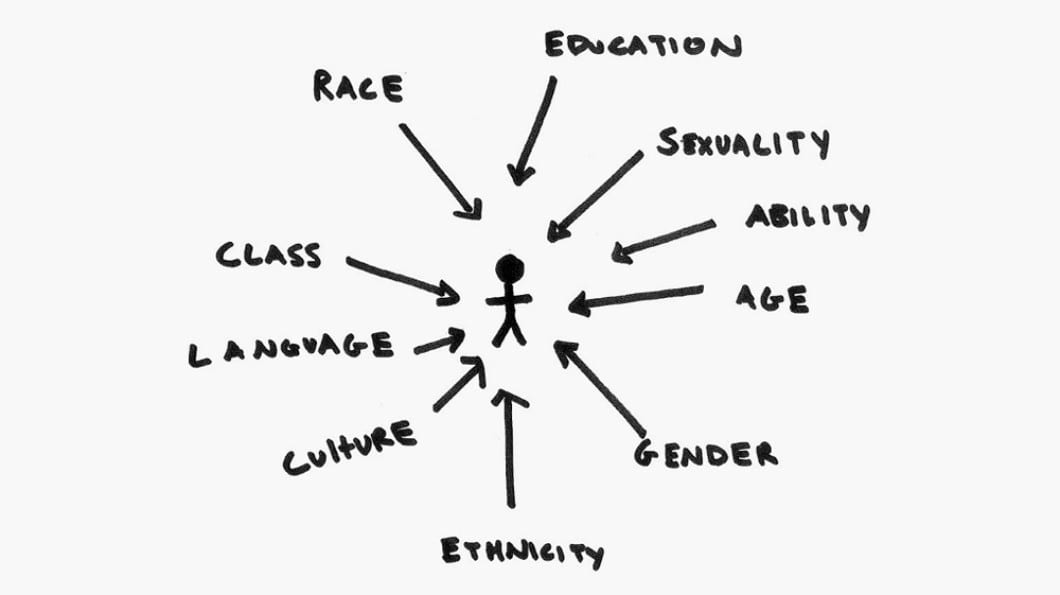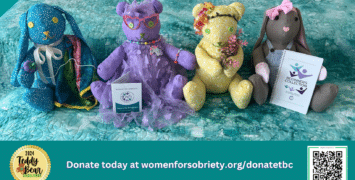Your cart is currently empty!

How Intersectional is Your Feminism?
Feminism & Women For Sobriety
by Jean Kirkpatrick, PhDIn the early years, I was always startled when persons referred to WFS as part of the feminist movement and yet, I see quite clearly that it is. Although I always knew that the values sought for through the Program are for women to be free from domination from others and to find themselves, I just never spoke of the WFS Program in this way.
But what is feminism? Has there ever been a movement or a word so badly treated and misunderstood?
To me, feminism is the right of women to seek equality in jobs, in payment for those jobs, and to be treated equally under the law. But it is so much more then that too.
To me, it means that we are to seek an equal status for ourselves and, in order to do that, we must find ourselves, define ourselves, and believe in ourselves. And that’s what our program seeks to do.
Too long we have been treated unfairly through the overriding dominance of the male system, yet there was none other. Too often I think we wanted to rebel but didn’t put anything in the place of the rebellion.
We cannot rise up against something unless we have something better to offer and I believe that can only happen when we change ourselves from dependent persons to independent persons, women strong in our beliefs, convictions, and commitments.
It is too easy to cry out about inequality without any substance underneath. The WFS Program should provide a way to make us strong in beliefs that provide substance to our outcry. Improving ourselves ultimately improves society.
One therapist, Miriam Greenspan, believes our thinking is at fault. Women fail to recognize the ways that men depend upon women and we end up thinking of ourselves as ‘dependent,’ when, in reality, it is men who are dependent. Women have been misled in our thinking. Society continues to accommodate male independence and thwart women’s, and so we, as women, have impaired thinking.
Women for Sobriety stands for women’s strengths. Both the program and the organization are dedicated to women finding inner strengths to create, and live the kind of lives we desire to live.
In the late 1980’s, WFS program founder Dr. Jean Kirkpatrick wrote the above article for the Sobering Thoughts newsletter. She also wrote frequently about women’s rights and the gender pay gap, and openly lamented about the Equal Rights Amendment not being ratified. Additionally, Jean testified twice before senate sub-committees advocating regarding the gender-specific needs of women with substance use disorders. Indeed, Jean was not afraid of “getting political” when it mattered – when it was relevant to the cause of empowering women so that they could come into their own and take control of their lives and their addictions.
As feminist theory has evolved, it has broadened to recognize the concept of intersectionality. This is the idea that in addition to the challenges faced by all women in our culture by virtue of their gender, some women face additional systemic and social barriers that compound marginalization and pushes them further to the fringes. These systemic and social barriers can range from the more invisible challenges such as education level, class, socioeconomic status, and sexuality, to more visible differences such as physical disability and non-white skin tone.
It’s not an “I-have-it-worse-than-you” competition. It’s about acknowledging and recognizing imbalances so that we can correct them.
It has taken me a long time to de-stigmatize my own feelings about having prejudices toward people with different skin tones. I was raised to believe that only bad or evil people are “racist”, and I initially felt really defensive when I started to look at my own subconscious prejudices. “But I’m a good person!” was my underlying thought. It took me a long time and a lot of work to accept that my deeply ingrained biases didn’t make me a bad person — they are simply an inevitable result of growing up in a society that was built on a racialized system. We have come a long way, yes, but there is still a very long way to go.
It’s a lot like recovery. I had to come out of denial so that I could grow.
I recognize my privilege as a white woman. Even though I have experienced a number of other sources of marginalization, my skin color is not one of them. I recognize that I sometimes jump too quickly to sharing my own, unrelated challenges when my friends of color share their stories of racial discrimination. I recognize that I am quick to say that I advocate against racism while in actuality I take very little concrete action to change the system that perpetuates it. I recognize that even though this topic is important to me and highly relevant to WFS (our program surveys show that a disproportionate number of our participants – over 90% – are white), my own insecurities and privilege kept me from addressing this critical topic sooner.
This is also a lot like recovery. It’s not a single event to unlearn a lifetime of conditioning, it is an ongoing process.
Today, I am following Jean’s example and taking a risk. I am “getting political” about something that matters to me, and something that I believe should matter to every single woman that walks through the proverbial WFS door. I am scared to be “going there” in my official capacity as WFS President/CEO. I feel really vulnerable sharing these things in this public way, and as a public figure in this organization. Yet I know that my discomfort does not come close to comparing to the discomfort of my 4C Sisters of color. And I know that as a woman in a leadership position, my conscience would not be clear if I did not respond in some way to the issues that are currently being raised.
Today, I accept the responsibility of proactively learning from the resources available to me.
So here I am, asking my 4C Sisters:
- What are we, the white women of WFS, willing to do to make sure that we fulfill the mission of WFS – to help all women find their individual path to recovery?
- How can we effectively reach out to women of color and help them feel welcomed and included in our groups?
- How can we hold each other accountable for creating a community that not only welcomes, but actively celebrates, every woman who finds our New Life Program?


